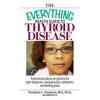On February 28, 2011, the National Institutes of Health (NIH) will celebrate the 4th annual Rare Disease Day with a day-long celebration and recognition of the various rare diseases research activities supported by the NIH Office of Rare Diseases Research, the NIH Clinical Center, the NIH Institutes and Centers, the Health Resources and Services Administration (HRSA), the Food & Drug Administration’s Office of Orphan Product Development (OOPD), the National Organization for Rare Disorders (NORD), and the Genetic Alliance. Rare Disease Day at NIH (RDD@NIH) will be held in the Lipsett Amphitheater from 8:30AM to 5:15PM.
In addition to the various scheduled talks, we expect to have posters and exhibits from many groups relevant to the rare diseases research community. Attendance is free and open to the public. In association with the Global Genes Project, we encourage all attendees to wear their favorite pair of jeans. You can view the agenda here.
While attendance is free, we would like to know how many people are planning to attend so that we can prepare accordingly. If you would like to attend, please register here. If you would like to display a poster or exhibit, please contact Dr. David J. Eckstein at eckstein@od.nih.gov for more information.
Sign language interpreters will be provided. Individuals with disabilities who need reasonable accommodation to participate in this event should contact Kimberly Potter at kpotter@icfi.com or 301-251-4962 or the Federal TTY Relay number at 1-800-877-8339.
About Rare Disease Day
Rare Disease Day was established to raise awareness with the public about rare diseases, the challenges encountered by those affected, the importance of research to develop diagnostics and treatments, and the impact of these diseases on patients' lives. The focus of Rare Disease Day 2010 was 'Patients and Researchers, Partners for Life!' and is aligned with ORDR's philosophy that researchers need to work closely with patients and patient advocacy groups to maximize chances for success. This philosophy has been put into practice in our very successful Rare Diseases Clinical Research Network.
There are about 7000 rare diseases identified in the United States. About 80% of rare diseases are genetic in origin and about 75% affect children. Rare diseases can be chronic, progressive, debilitating, disabling, severe and life-threatening. Information is often scarce and research is usually insufficient. People affected face challenges such as delays in obtaining a diagnosis, misdiagnosis, psychological burden and lack of support services for the patient and family. The goals remain for rare disease patients to obtain the highest attainable standard of health and to be provided the resources required to overcome common obstacles in their lives.By highlighting these issues, the NIH Office of Rare Diseases Research hopes to
- Raise awareness of rare diseases
- Strengthen the voice of patients and patient advocacy groups
- Give hope and information to patients
- Bring stakeholders closer together
- Coordinate policy actions within the United States and with other countries
- Inspire continued growth of the awareness of rare diseases
- Emphasize rare disease research and the search for new therapeutics
- Get equality in access to care and treatment
The first Rare Disease Day sponsored by EURORDIS was held in Europe on February 29, 2008. February 29th was chosen since it is a rare day and it is symbolic of rare diseases. 2009 was the first time that Rare Disease Day was observed in the U.S. In addition to 17 European countries participating in Rare Disease Day 2009, the United States was joined by Argentina, Australia, Canada, China, Colombia, and Taiwan in celebrating the first global Rare Disease Day. The National Organization for Rare Disorders serves as the coordinator of this activity in the United States.
Progeria BriefingTimed to correspond with the celebration of Rare Disease Day 2010, the Coalition for the Life Sciences is hosting a briefing of the Congressional Biomedical Research Caucus on “Children Aging Before Their Time: Can Progeria Now Be Treated?” The Congressional Biomedical Research Caucus provides a forum where members and staff can interact directly with preeminent researchers responsible for important scientific discoveries. For details, view the progeria briefing - (PDF, 37KB).
-->The Global Genes Project
 A video developed by a rare disease parent advocate circulated on YouTube as part of World Rare Disease Day 2009, making a connection between jeans and genes. This video inspired a group of individuals and rare disease organizations to take this connection to the next level by creating the Global Genes Project, a grassroots effort to use jeans to raise awareness for rare genetic disorders.
A video developed by a rare disease parent advocate circulated on YouTube as part of World Rare Disease Day 2009, making a connection between jeans and genes. This video inspired a group of individuals and rare disease organizations to take this connection to the next level by creating the Global Genes Project, a grassroots effort to use jeans to raise awareness for rare genetic disorders.
This group has grown and continues to add individuals and organizations that want to be involved. The hope is that the rare disease community as a whole will view this initiative as an opportunity to build unity around this important cause. The goal is to create a platform for collaboration, while building awareness about the prevalence of rare diseases, educating the public about genes and the impact they play in rare diseases, and engaging support from the general public.
There are numerous organizations that are working to help some of the individual diseases. They are funding much needed research, helping drive policy and develop educational programs, all in an effort to bring hope to this underserved community. The Global Genes Project encourages those who are concerned and compelled to join the cause to help both individual rare disease organizations, children and their families affected, as well as the community as a whole.

